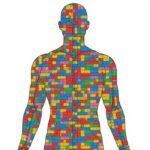A Hitchhiker’s and Backpacker’s View on Drug Delivery
Zoom Information: wse.zoom.us/j/96121697380
Abstract: Effective delivery of drugs is a major problem in today’s therapeutics. At a fundamental level, the challenge of drug delivery reflects the fact that the drug distribution in the body is limited by body’s natural metabolic processes and transport barriers. These biological barriers, while serving an important purpose of regulating body’s metabolic functions, limit the drug dose that ultimately reaches the target site. Accordingly, many drugs fail to reach their full therapeutic potential. Our research aims to understand body’s key biological barriers and develop novel means to negotiate these barriers to deliver drugs. We have developed means to use body’s own circulatory cells including red blood cells, macrophages, monocytes, neutrophils, NK cells and T cells to overcome body’s barriers and deliver drugs to target tissues for the treatment of cancer, autoimmune disorders and trauma. I will present an overview of these strategies and their efficacy in drug delivery.
Samir Mitragotri is the Hiller Professor of Bioengineering and Wyss Professor of Biologically Inspired Engineering at Harvard University. His research is focused on drug delivery systems. He is an elected member of the National Academy of Engineering, National Academy of Medicine and National Academy of Inventors. He is also an elected fellow of AAAS, CRS, BMES, AIMBE, and AAPS. He is an author of over 400 publications, an inventor on over 225 patent/patent applications, and a Clarivate Highly Cited Researcher. He received his BS in Chemical Engineering from the Institute of Chemical Technology, India and a PhD in Chemical Engineering from the Massachusetts Institute of Technology.
Latest Posts
-
 Cellular building blocks may enable new understanding of the body’s “machinery”
December 19, 2025
Cellular building blocks may enable new understanding of the body’s “machinery”
December 19, 2025
-
 Biomedical Engineer Jamie Spangler Receives President’s Frontier Award
December 15, 2025
Biomedical Engineer Jamie Spangler Receives President’s Frontier Award
December 15, 2025
-
 Johns Hopkins Postdoc Named in Forbes `30 Under 30′ List
December 8, 2025
Johns Hopkins Postdoc Named in Forbes `30 Under 30′ List
December 8, 2025


